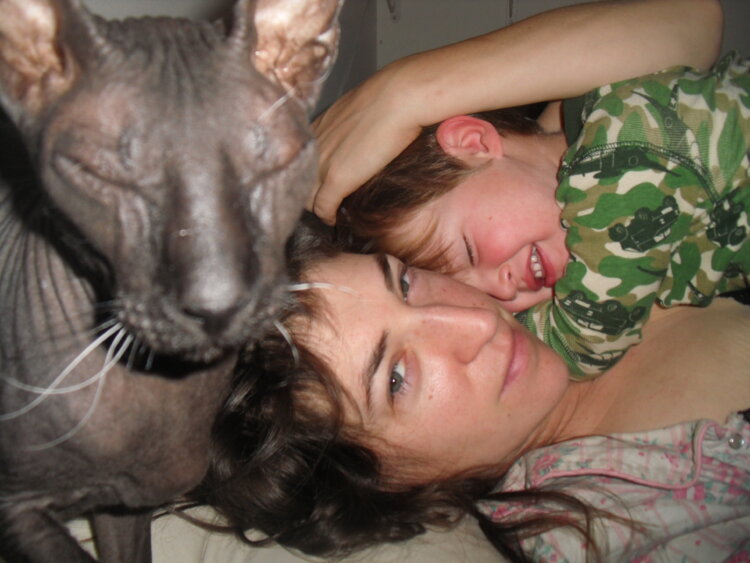
For National Breastfeeding Month, Grok Nation is running a series about nursing by our founder, Mayim Bialik, who is a Certified Lactation Educator Counselor (CLEC). For her past posts full of tips, tricks and advice, click here.
As a Certified Lactation Educator Counselor, I mostly get questions about the earliest stages of breastfeeding: what to expect in the first days, weeks, and months, how to get the baby to latch on securely, how to handle challenges such as sore nipples, mastitis, or a fussy baby, and how to make more milk.
However, I also deal with later stages of breastfeeding, such as returning to work, pumping needs, and the ways to get your cycle back to have more children and how to wean. While there is no one thing I can recommend for every mom, I take into account a lot of factors and make the best recommendations I can. I am not a medical doctor. Always check with your pediatrician for specifics about weaning, but here are a few things to keep in mind:
- Eating is the start of weaning. Breastmilk is a perfectly formulated food for your baby for the entire first year of life. People think you have to introduce solids at 6 or 9 months of age, but you absolutely do not have to. Once you start introducing food, you have technically started the weaning process. It may end up taking many months to wean after you first introduce solids, but know that food is the first step of weaning. If you are looking to nurse less, you can increase the amount of food you give a baby. Make sure to also increase intake of water since babies can get easily constipated and milk is not enough fluid to handle solids. In addition, if you wean from the breast, you do not have to replace with cow’s milk or even soy milk depending on the age of the baby. Talk to your doctor for what’s best for your baby.
- Healthy distraction. When cutting back on frequency of nursing, especially first thing in the morning, it is important to not linger in situations where baby is used to nursing all cuddly and cozy. My boys loved a nice long morning nursing and when we started to cut back, it meant I had to get my butt out of bed; they were too young to understand, so I had to get creative and distract them. We would read a book or I would do work in the kitchen while they played. When they got older and were eating, I would get out of bed and get them breakfast—instead of nursing them—while I did the dishes and straightened up. I was often very tired (since my boys nursed approximately six times a night), but it was necessary if I wanted to communicate a shift to them.
- Replace time and attention spent nursing with something else. Something a lot of people don’t know is that you can’t simply remove a nursing session. It really should be replaced with some contact or intimacy. You see, nursing provides nourishment in an environment of warmth, cuddling, and intimacy. Baby still has those needs and they can be met other ways. Instituting special reading and cuddling time as you cut feedings is a great place to start. Taking baths together is also a really good bonding experience, or even increasing bath time to be fun play time can help. Babies and toddlers will absolutely indicate that they know nursing has decreased, and every child will react differently. If a child is fussy or upset as you cut feedings, they may need some more closeness.
- Night needs. The hardest nursing sessions to cut tend to be the ones that put baby to sleep. So, before naps and before bedtime are typically the last sessions to go. I saved those for last and I think many moms do as well. Sleep and nursing go hand in hand and it’s okay to let baby be nursed to sleep!
Breastfeeding is a wonderful way to nourish your child nutritionally and emotionally, but it only works as long as it works for everyone. If you are feeling resentful, out of sorts, or excessively emotional because of nursing, you may want to speak to a doctor about it or attend a free La Leche League meeting for support.
Everyone’s needs are important and every child weans. Know that some days may feel like a step backward, such as if your baby gets a cold or has something scary happen (my sons would often show clingy behavior if they saw a clown, for example, or if someone pushed them at the park). Weaning is not boot camp; you don’t need to all-or-nothing your baby.
Listen to your baby, listen to your heart, and most of all: Don’t listen to people who claim they know what you should do. Only you know best what works for your baby and your family!




 Read More From Mayim
Read More From Mayim
Grok Nation Comment Policy
We welcome thoughtful, grokky comments—keep your negativity and spam to yourself. Please read our Comment Policy before commenting.